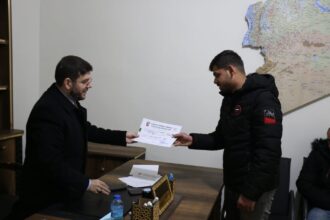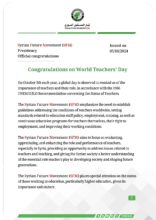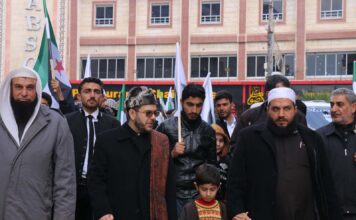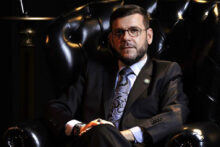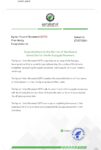The Role and Importance of Politicians

Introduction:
Politicians are the individuals who directly participate in decision-making processes that affect society. They represent various currents and ideas and compete for power through elections or other means available within the political system. A good politician is someone who possesses a set of qualities and skills, including the ability to lead and unite people to achieve common goals, having a clear vision for the future of society, and being able to develop plans to achieve that vision. A politician has the necessary knowledge and experience to make the right decisions, is committed to ethical values, and places the interests of the country and its citizens above all else. A politician is also able to effectively communicate with the public, clarify their ideas and proposals, and adapt to the changes and challenges facing society.
The Role of Politicians:
Politicians play vital roles in society, including:
- Formulating and amending laws that govern the lives of citizens.
- Distributing financial and human resources across various sectors.
- Providing essential services to citizens, such as education, healthcare, and housing.
- Representing the interests of citizens in international and regional forums.
All these roles divide politicians into true politicians and fake ones! True politicians work to maintain security and stability in society, strive to solve the problems facing the community and meet the needs of citizens, work on the development of society, achieve progress and prosperity, and aim to build a better future for future generations.
The Importance of Politicians in Syria:
Politicians in Syria face significant challenges, as the Syrian crisis has destroyed infrastructure, displaced millions, and divided the country, placing a heavy burden on politicians to rebuild the country and achieve national reconciliation. Additionally, the widespread corruption in both state and opposition institutions is a major obstacle to development and progress. Moreover, the existence of different political views and currents makes it difficult to reach consensus on crucial national issues.
Political decisions in Syria are also influenced by external pressures from major countries and international organizations, making the situation complex but also creating an environment for the emergence of successful politicians.
The importance of having politicians in Syria, as in any other country, is evident in several key areas:
- Decision-making and guiding the state: Politicians play a vital role in formulating and making decisions that affect the lives of citizens by enacting laws and determining public policies in various fields such as economy, education, health, and security.
- Representing the people: Politicians represent the voice of the people and are responsible for conveying their demands and needs to governmental institutions.
- State-building: They contribute to building and strengthening the state by developing strategic plans and implementing development projects that help elevate the country’s condition.
- Problem-solving: They confront the challenges and conflicts facing the country and work to find suitable solutions.
- Promoting international cooperation: They represent their country in international forums and strengthen relations with other countries in ways that serve national interests.
Despite the significant challenges facing Syria, there is hope for a better future. However, this requires the presence of wise and prudent political leadership capable of building trust between citizens and the authorities through transparency and justice. It also requires decisive actions to combat corruption, recover stolen funds, encourage comprehensive national dialogue among all political and societal factions, and build a strong state based on institutions and the rule of law, while establishing balanced relationships with other countries, particularly neighboring and regional states.
Pros and Cons:
Having politicians in any society is necessary and vital, as they are the driving force for change and development. Here are some positive aspects that benefit society from their presence:
- Decision-making: Politicians are responsible for making important decisions that affect people’s lives by enacting laws and determining public policies in various fields.
- Representing the people: They work to represent the interests and rights of the people, conveying their demands to the relevant authorities.
- Providing public services: They contribute to providing essential services to citizens, such as education, healthcare, housing, and infrastructure.
- State-building: They work to build and strengthen the state through strategic planning and implementing development projects.
- Problem-solving: They confront the challenges and conflicts facing society and work to find appropriate solutions.
- Promoting international cooperation: They represent their country in international forums and enhance relationships with other nations in ways that serve national interests.
- Developing society: They contribute to the development of society, achieving progress and prosperity by encouraging creativity and innovation.
- Maintaining public order: They work to maintain security and stability in society.
In summary, politicians are the leaders who guide society toward a better future. They are responsible for achieving comprehensive development and social justice. However, despite the significant importance of having politicians to manage the affairs of the state and society, there are some drawbacks associated with this role, including:
- Corruption: Some politicians may exploit their positions for personal gain at the expense of public interest, leading to the spread of corruption and the deterioration of public services.
- Partisanship and division: Intense party competition may lead to divisions and political conflicts, hindering development and progress, and negatively affecting social stability.
- Conflict of interest: Some politicians may face conflicts of interest between their personal gain and the interests of the state, affecting their ability to make the right decisions.
- Lack of competence: Some politicians may lack the necessary competence and experience to make the right decisions, leading to poor decisions that negatively impact society.
- Manipulation of public opinion: Some politicians may resort to manipulating public opinion using the media, promoting lies and rumors to achieve personal interests.
- Dictatorship: Some politicians may turn into dictators who exploit power to impose their will on the people and suppress opposition.
- Foreign influence: Some politicians may prioritize the interests of foreign nations over their own country, adopting ideologies and ideas spread within the state structure to serve other countries at the expense of national interests. They may even leak national information to foreign states for them to use at the right time.
- Extreme ideologies: Some politicians may follow extreme ideologies that lead to conflict and violence.
To mitigate these drawbacks, politicians must first commit to the law and ethics, serving as role models for their communities by adhering to the laws before requiring others to do so. They must be transparent in all their actions and be held accountable for any mistakes they make. They should prioritize the nation’s and citizens’ best interests over personal gain. Politicians must also possess the keys to dialogue and cooperation with all political opponents, including those in the regime, opposition, Islamists, nationalists, leftists, and others, to achieve the greater good of the country.
Additionally, they should work on developing their competencies and abilities through continuous education and training.
There is no doubt that having genuine politicians is essential for any society. However, they must uphold a high level of responsibility and integrity, striving to serve the interests of the nation and its citizens.
Challenges:
The political arena in Syria faces significant challenges that hinder the process of reform and reconstruction. Some of the most prominent challenges include:
- Humanitarian crisis: The humanitarian crisis caused by the civil war is one of the most pressing issues, requiring immense efforts to rebuild infrastructure, provide basic services to citizens, and address the psychological and social impacts.
- Displacement and refugees: The war has led to the displacement of millions of Syrians both inside and outside the country, presenting a major challenge in terms of reconstruction and resettling displaced persons and refugees.
- Sectarian and religious divisions: The war has deepened sectarian and religious divisions within Syrian society, making it difficult to achieve national reconciliation and build a civil state.
- Foreign interventions: Syria is subject to external interventions by regional and international powers, which complicate the political resolution process and affect the course of events.
- Corruption: Corruption has spread widely during the war years, weakening trust in government institutions and stalling development efforts.
- Lack of rule of law: The judicial system has collapsed in many areas, leading to chaos and instability.
- Economic crisis: Syria suffers from a severe economic crisis due to the war and economic sanctions, resulting in rising poverty and unemployment rates.
- Presence of multiple armed groups: The existence of various armed groups on the ground increases the complexity of the security situation and complicates control over the territories.
To overcome these challenges, it is crucial for politicians in Syria to prioritize the nation’s interests above all else. This can be achieved by focusing on the welfare of the country and its citizens, overcoming political and party differences, and encouraging comprehensive national dialogue among all political and societal factions to achieve national and civil peace and security.
Absence and Loss:
The absence of genuine politicians poses a serious threat to the stability and development of societies. These politicians, both men and women, are the leaders responsible for formulating policies and making critical decisions that affect people’s lives. When this type of leadership is missing, societies face numerous risks and challenges, such as:
- Leadership vacuum: The absence of true leaders creates a leadership vacuum, making society vulnerable to internal conflicts and chaos.
- Mismanagement: Leadership positions may be filled by unqualified or uninterested individuals, leading to mismanagement and corruption in institutions.
- Declining trust: The absence of trustworthy leaders erodes citizens’ confidence in governmental institutions, deepening social divisions.
- Deterioration of public services: Services such as education, healthcare, and infrastructure may decline due to mismanagement and a lack of investment.
- Foreign dependency: Societies may become more susceptible to external influence and political pressure, limiting their ability to make independent decisions.
- Development slowdown: Economic and social development may slow down, negatively affecting citizens’ standard of living.
But what is the true politician we miss in Syria and need?
A true politician is someone who embodies integrity and honesty, always placing the interests of the nation and its citizens first and foremost. This individual must have the necessary competencies and skills to take on responsibilities, with a clear vision for the future of society and the ability to create plans to achieve that vision. A true politician is also capable of rallying people and uniting them around a common goal, making tough decisions even when they are unpopular, while respecting and enforcing the law equally on everyone without exception.
We need to build a new generation of leaders by focusing on education as the foundation for a strong society. This involves equipping young people with the knowledge and skills needed to participate in public life, while also encouraging their involvement in political and civic affairs.
The absence of true politicians poses a serious threat to the future of any society. Therefore, we must all work together to cultivate a new generation of leaders who are competent, honest, and capable of guiding our communities toward a better future.
Conclusion:
Defining the ideal situation for the role of politicians in a country undergoing exceptional circumstances like Syria is a complex and multifaceted issue. It requires the availability of various factors and conditions.
However, we can identify some essential features of this ideal situation:
- Integrity and Competence: Politicians must possess high integrity and exceptional competence, being capable of making difficult and objective decisions while placing the interests of the nation and citizens above all else.
- True Representation of the People: They should be able to represent all segments of the Syrian population, reflecting their aspirations and hopes.
- Awareness of Challenges: Politicians must be fully aware of the challenges facing Syria and possess a clear vision for the country’s future.
- Ability to Dialogue and Reach Consensus: They should be able to engage in dialogue with various political and social parties, striving for consensus on common solutions.
- Independence from External Influences: Politicians must be able to make independent decisions without being swayed by external pressures.
- Commitment to the Law: They should adhere to the law and apply it equally to everyone without exception.
- Avoidance of Favoritism: Politicians must build strong institutions based on competence and fairness, steering clear of nepotism and favoritism.
All of this requires factors that facilitate achieving this ideal state, which we see represented by the establishment of a democratic political system that allows citizens to participate actively in decision-making, ensures the peaceful transfer of power, and combats corruption in all its forms, as corruption is the greatest obstacle to development and progress. The law should be the supreme authority, applied equally to all, alongside the establishment of a strong civil society that contributes to monitoring government performance and providing political, economic, and social alternatives.
Additionally, there should be a focus on education and political awareness for citizens to empower them to participate effectively in political life.
Achieving the ideal state of politicians in Syria requires joint efforts from all parties and will take considerable time and diligent work.
Presidency office
Dr. Zaher Ihssan Baadarani
Article
Syrian Future Movement (SFM)
